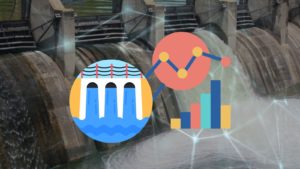With the progression of industrial processes and commercial spaces, the soaring advancements of the technological backgrounds and the intricate client demands; the need for more innovative robot software has never been this severe. Software robots are now trained to execute tedious, repetitive tasks while saving time for human specialists to focus on work driven by higher values. As we are heading towards a paperless future, the need for smarter ways to deploy the use of robots is now made easier with RPA (Robotic Process Automation) systems.
The RPA is a framework that allows software robot utilisers to overcome the barriers in developing personalised technologies to build, deploy and manage robotic software. Robots that emulate online and offline computer actions can be guided to interact with software and other digital systems. In other words, it allows the automated software to understand how to navigate systems, interact with a screen, identify data anomalies, complete precise keystrokes and perform other practical actions. This technology facilitates a range of industrial domains:
- Consumer Goods
- Financial and Banking
- Government
- Healthcare
- Hospitality
- Manufacturing
- Procure-to-pay
- Retail
- Technology
- Telecommunication and many more.
Why is RPA Transformation Can Never Be Disregarded by Organisations
Smart software is more efficient than the human workforce- even though there are double-opinions on this by technology critics. The debate regarding this is as old as time- pragmatically speaking, virtual robots do overlap human efforts when they are smarter. Lower-value work like copying, transferring files, inserting data from files to other files, chat conversations and implementing actions in a range of well-defined actions.
The virtual robots do not get up to stretch or go for a quick stroll to reset their minds, stop for a lunch or coffee break, or get caught with the internal politics of organisations; they work fastly, seamlessly and more accurately than humans. As these robots can take over tasks completed by a team of people, they are exceptionally cost-efficient too. Modern virtual robots are trained to do complex tasks like routine-based analytics, educate teams about data anomalies in real-time and even understand unstructured data and standardise information to a single format.
Another intriguing feature of RPA systems is that they learn, just like humans. They get smarter every time their AI models are fed with more and more information; they are bred to work smarter and more efficiently with time. Therefore, this software is ideal for being implemented in a broad swath of commercial processes and industries, resulting in freeing people from the tedium and repetitive operations that means a lot to the growth of the organisations. These robots can be advanced with AI, IIoT systems, predictive and prescriptive analytics and other micro service-oriented features to virtually facilitate cognitive processes– making them an incredible candidate for process automation.
Inherent Risks and Risk Mitigation in Implementing RPA Technologies
- Businesses can hire experienced professionals that can help in developing the innovative implementation of effective strategies
- Carefully analyse variant business processes to identify processes that can be automated to make informed and actionable business decisions.
- Monitor automated processes in real-time to detect anomalies in data streams and operations
- Training the existing staff to upskill their talents and skills to meet futuristic performance goals and co-work with virtual robots
- Use hi-tech data security systems to keep online threats and cyber thieves away from sensitive information
Benefits of Using RPA Systems for your Robot-empowering Environment
RAP systems are used by commercial and industrial businesses like:
- Automated managing of inventories and retail operations
- Automated hiring and onboarding systems to hunt down the most apt talents and skills for the businesses
- Executing effortless payroll decisions based on real-time information- no deferred payments
- Proactive customer service portals for clients with personalised dilemmas
- Supercharging the Finance and Accounting Systems with automated operations
- Make informed decisions by comparing suppliers, products, projects to prioritise investment or expand networks
There are many benefits to employing virtual robots by RPA robot-centric organisations. Some of the most unparalleled benefits are explained below:
- Boost the productivity to a whole different scale
- Eliminate manual eros by more than 50% by achieving higher rates of automatic accuracy
- Employees can focus on more intricate strategic work and overlook mundane operations
- Improve the compliance in meeting high-end expectations of the company
- Major cost savings is a significant and reassured benefit of implementing virtual robots
- RPA allows greater resilience for companies to match workload peaks with their ability to meet substantial demand spikes
- RPA technology paces every businesses journey towards digital transformation







